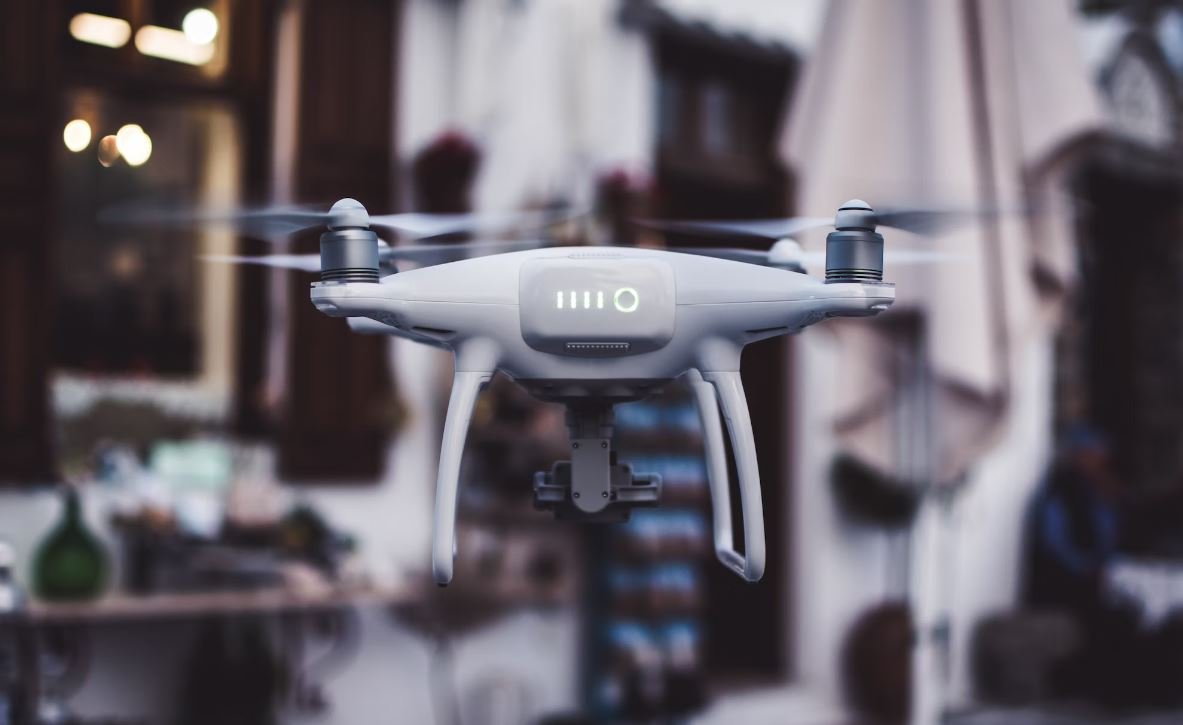Can Music Lower Blood Pressure?
Listening to music has long been known to have a range of benefits for our mental and emotional well-being. But can it also have a positive impact on our physical health, specifically in reducing blood pressure? In this article, we explore the potential relationship between music and blood pressure, and whether incorporating music into our daily routines can be a potential natural remedy for hypertension.
Key Takeaways:
- Listening to music may help lower blood pressure levels.
- The type and tempo of music matter when it comes to cardiovascular benefits.
- Music has a calming effect on the body, reducing stress and anxiety.
**Several scientific studies have found a correlation between listening to music and a decrease in blood pressure**. The rhythm and melody can have a soothing effect on our bodies, promoting relaxation and reducing stress. *One interesting finding is that music with a slow tempo and a consistent beat tends to have the greatest impact on lowering blood pressure*.
In addition to its direct physiological effects, music is known to have a positive influence on our mental state. When we listen to music we enjoy, our brains release endorphins, which are the “feel-good” chemicals that can help reduce anxiety and stress levels. *This calming effect on the mind and body may contribute to the blood pressure-lowering effect of music*.
The Cardiovascular Benefits of Music
**Research shows that listening to music can result in lower blood pressure readings**. In one study, participants who listened to classical music for 30 minutes a day experienced a significant decrease in both systolic and diastolic blood pressure. *This demonstrates the potential of music as a complementary therapy for those with hypertension*.
To better understand the effects of different types of music on blood pressure, researchers have investigated the impact of various genres. Classical music, particularly pieces with slow and steady rhythms, seems to have the greatest positive effect. This could be attributed to the fact that the cardiovascular system synchronizes with the tempo of the music, leading to a more relaxed state.
The Role of Stress Reduction
**Stress is a major contributing factor to high blood pressure**, and music has been shown to be an effective tool for stress reduction. Listening to calming music can trigger the relaxation response, which helps lower blood pressure and heart rate. *Interestingly, the effect of music on stress reduction seems to be independent of personal musical preferences*.
If we consider the hectic nature of our daily lives, finding time to relax and unwind becomes essential. Incorporating music into our routines can be an easy and enjoyable way to manage stress and potentially lower blood pressure. Whether it’s listening to soft melodies during meditation, playing an instrument, or attending a live concert, music can provide an effective means of escape from the daily pressures of life.
The Power of Music
While further research is needed to fully understand the mechanisms behind the blood pressure-lowering effects of music, the existing evidence supports the idea that **music can be used as a natural and accessible method to complement traditional treatments for hypertension**.
It’s important to note that while music can have a positive impact on blood pressure, it is not a standalone solution. Maintaining a healthy lifestyle, including regular exercise, a balanced diet, and medication as prescribed by a medical professional, is crucial for long-term blood pressure management.
Overall, adding music to our daily routines may have numerous health benefits, including potential reductions in blood pressure. So, turn up the tunes, relax, and let the power of music guide you towards a healthier life.

Common Misconceptions
Misconception 1: Music can instantly lower blood pressure
One common misconception about music is that it can instantly lower blood pressure. While music can have a calming effect on the body and mind, it is not a magic cure for high blood pressure. It takes time and consistent exposure to music to see any potential benefits on blood pressure levels.
- Music can help reduce stress levels, which indirectly might affect blood pressure.
- The impact of music on blood pressure varies from person to person.
- Listening to soothing music regularly, combined with other healthy lifestyle choices, may lead to better blood pressure management over time.
Misconception 2: Any type of music can lower blood pressure
Another misconception is that any type of music can lower blood pressure. While music can have a positive impact on our emotional state, not all genres or songs will produce the same physiological response. Different people have different preferences and resonate with different types of music, so finding the right genre or songs that personally relax and calm an individual is essential.
- The choice of music should be personalized and appealing to the listener.
- Slow tempo music with a low arousal level tends to have a more calming effect on the body.
- Meditative music or classical music has been found to be particularly effective in reducing stress levels and potentially impacting blood pressure.
Misconception 3: Music alone can replace medical treatments for high blood pressure
While music can be a valuable tool for managing blood pressure, it is important to note that it cannot replace medical treatments. Blood pressure management requires a comprehensive approach that includes lifestyle changes, medication, and regular monitoring. Music can be used as an adjunct therapy, but medical advice should always be sought and followed.
- Music should be seen as a supplemental approach, not a substitute for medical treatment.
- Consulting with a healthcare professional is necessary to determine the most appropriate treatment plan for managing blood pressure.
- Integrating music into one’s daily routine can complement existing treatments and potentially enhance their effectiveness.
Misconception 4: Music has the same effect on everyone’s blood pressure
It is a misconception that music has the same effect on everyone’s blood pressure. Each individual responds differently to music, and the influence it has on blood pressure can vary from person to person. Factors such as personal preferences, cultural background, and past experiences with music can influence the effectiveness of music in reducing blood pressure.
- Individuals may have different emotional connections to music, which can impact its effectiveness in lowering blood pressure.
- The response to music may depend on the individual’s mood, stress levels, and overall health condition.
- Experimenting with different types of music and observing how it affects one’s own blood pressure can help identify what works best for each individual.
Misconception 5: Playing any music instrument will lower blood pressure
While playing a musical instrument can be a fulfilling and enjoyable activity, it does not automatically lead to lower blood pressure. While playing an instrument can have a positive impact on mental well-being, it is the act of listening to music rather than playing that has been studied specifically for its potential benefits on blood pressure.
- The act of playing a musical instrument engages the mind and body, which might indirectly impact blood pressure through stress reduction.
- Listening to music can often create a more relaxed state in comparison to actively playing an instrument, which may contribute to blood pressure reduction.
- Both listening to music and playing an instrument can have their own unique benefits, but they may not have the same effects on blood pressure.

Effects of Music on Blood Pressure
Studies have shown that music can have a profound impact on our health, including reducing blood pressure. Here are 10 interesting findings that highlight the relationship between music and blood pressure levels.
Music Genre and Blood Pressure
Research has shown that different music genres can have varying effects on blood pressure. Classical music has been found to have a calming effect, resulting in lowered blood pressure levels. On the other hand, heavy metal music can lead to increased blood pressure.
Music Tempo and Blood Pressure
The tempo of music can also influence blood pressure. Slow music with a gentle tempo has been associated with decreased blood pressure, while fast-paced music tends to raise it.
The Role of Lyrics in Blood Pressure
Lyrics can have a significant impact on blood pressure. Positive and uplifting lyrics have been found to decrease blood pressure levels, while negative or aggressive lyrics can have the opposite effect.
Instrumental Music and Blood Pressure
Instrumental music, without any lyrics or vocals, has been shown to effectively lower blood pressure levels. This suggests that the calming effect of music can be attributed to the melodies and harmonies themselves.
Preferred Music and Blood Pressure
Listening to one’s preferred music can have a more pronounced effect on blood pressure compared to unfamiliar music. This indicates that personal preference plays a role in the physiological response to music.
Live Music Performance and Blood Pressure
Attending live music performances has been linked to a decrease in blood pressure. The combination of the music itself, the atmosphere, and the communal experience may contribute to this positive effect.
Volume and Blood Pressure
The volume of music can influence blood pressure levels. Listening to music at a moderate volume has been found to promote relaxation and lower blood pressure, while loud music can have an opposite effect.
Effects of Musical Rhythm on Blood Pressure
The rhythmic pattern of music can impact blood pressure. Listening to music with a consistent and regular rhythm has been associated with lower blood pressure, while erratic or irregular rhythms can lead to an increase.
Duration of Music and Blood Pressure
The length of time spent listening to music can affect blood pressure. Extended periods of listening to relaxing music have been shown to have a sustained, positive effect on blood pressure levels.
In conclusion, the relationship between music and blood pressure is a fascinating area of study. The various factors discussed above, such as music genre, tempo, lyrics, and preferred music, all contribute to the impact music can have on our blood pressure. Whether through classical melodies, soothing instrumentals, or our favorite tunes, music has the potential to positively influence our health and lower blood pressure levels.
Frequently Asked Questions
Can music lower blood pressure?
How does music help in lowering blood pressure?
Music has a calming effect on the body and mind, reducing stress and anxiety, which are key factors in elevated blood pressure levels. Listening to relaxing music can cause a decrease in heart rate and blood pressure, promoting a sense of relaxation and well-being.
What type of music is best for lowering blood pressure?
There is no one-size-fits-all answer to this question as individual preferences vary. However, instrumental music with a slow tempo, such as classical, jazz, or nature sounds, tends to be highly effective in promoting relaxation and lowering blood pressure.
How long should I listen to music to see blood pressure-lowering effects?
While the exact duration varies from person to person, listening to relaxing music for at least 30 minutes daily can begin to show positive effects on blood pressure. Consistency is key, so incorporating music into your daily routine can be beneficial.
Can music be used as a primary treatment for high blood pressure?
While music can be a helpful adjunct to traditional medical treatments for high blood pressure, it is not recommended as a standalone treatment. It is important to consult with a healthcare professional and follow their advice for managing high blood pressure.
Are there any specific guidelines for using music to lower blood pressure?
There are no specific guidelines, but it is generally recommended to find a quiet, comfortable space to listen to music without distractions. You can experiment with different genres and styles to find what works best for you in terms of relaxation and stress reduction.
Can listening to music alone replace other lifestyle changes to lower blood pressure?
Although music can be a beneficial addition to lifestyle changes, it is not a substitute for other well-established methods of managing blood pressure such as adopting a healthy diet, regular exercise, minimizing alcohol consumption, and taking prescribed medications if necessary.
Do headphones or speakers make a difference in blood pressure reduction?
The choice between headphones or speakers ultimately comes down to personal preference. The effectiveness in lowering blood pressure is not directly influenced by the delivery method. It’s more important to focus on selecting music that relaxes and soothes you, regardless of how it is played.
Can music help reduce stress-related blood pressure spikes?
Yes, music can be beneficial in managing stress-related blood pressure spikes. Listening to calming music during stressful situations or incorporating music into your relaxation routine can help in reducing the impact of stress on blood pressure levels.
Is it necessary to have any prior musical training to benefit from music’s blood pressure-lowering effects?
No, prior musical training is not necessary to experience the blood pressure-lowering effects of music. You can simply listen and enjoy music that resonates with you, even if you are not musically inclined or knowledgeable about the technical aspects of music.
Can music be used alongside medication for blood pressure management?
Yes, music can be used alongside medication for blood pressure management. It is important to follow the advice of your healthcare provider and not solely rely on music as a replacement for prescribed medications. However, incorporating music into your daily routine can complement the overall treatment plan.




